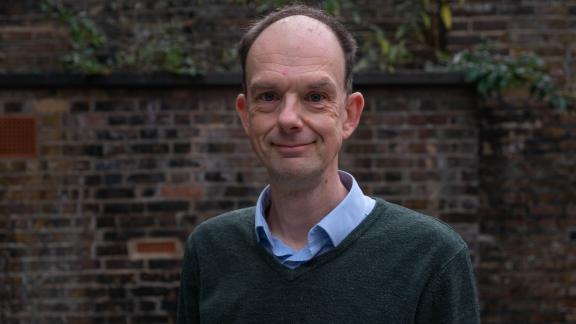Creating mental health alliances for improved mental healthcare delivery

Forming local mental health alliances between the NHS and a range of voluntary and community sector groups has the potential to create more effective and equitable support for people living with mental health difficulties, writes Andy Bell.
Voluntary, community and social enterprise (VCSE) organisations are increasingly being recognised for the value they can add to mental health service provision in the UK. But the ways in which they are engaged by statutory bodies, and how they relate to each other, is critical to making the most of their contributions to people’s lives and to sustaining them for the long-term.
For many years, a succession of reports has been published on the importance of VCSE organisations in providing a wide range of mental health services and the ongoing problem of fragmented and inequitable funding and power relationships they have with the NHS and local councils. The sector endures perennial problems of short-term funding, delayed decision-making, successive cuts (sometimes euphemistically referred to as ‘efficiencies’), cumbersome and demanding competitive tendering processes, sudden changes of priority and patronising attitudes towards its services.
"Community organisations come with a stronger sense of safety, of positive identity, of shared ownership and of mutuality"
However, research consistently shows that VCSE organisations are better trusted than statutory services among groups of people who have had negative and harmful experiences of public services. Community organisations come with a stronger sense of safety, of positive identity, of shared ownership and of mutuality. They are more likely to prioritise people’s social needs than traditional clinical services, and in so doing have a pivotal part to play in any ‘transformed’ community mental health service. They also have a crucial advocacy role, for both individuals and communities, that goes beyond contracted service provision and that needs to be given space.
There are places, though, where community health services are being delivered in partnership with the NHS to great effect. With funding from the Charities Aid Foundation, the charity Rethink Mental Illness has been delivering four ‘mental health alliances’ in local areas across England with ambitions to create a stronger, more consistent, more collaborative and more equitable basis for VCSE organisations to work with the statutory sector in those places. Centre for Mental Health has spent three years evaluating the progress, challenges and successes of these alliances.
"Collaboration across organisations that have previously been forced to compete for scarce resources requires high levels of trust"
As might be expected, it’s not always been easy. Collaboration across organisations that have previously been forced to compete for scarce resources requires high levels of trust. And building trust takes time, generosity, empathy, and persistence. But with it, the alliances have worked through challenging issues collectively and overcome the fragmentation that has too often made integrated care for people with a mental illness unachievable.
Our report shares the learning we have captured from the journey these alliances have been on and highlights critical elements for success. These include factoring in enough time to build trusting relationships, ensuring support provided is culturally appropriate and, crucially, securing sustainable funding. The involvement of people with lived experience of mental health problems – and their co-production and collaboration with mental health professionals – was fundamental to the alliances’ success.
"Done well, (mental health alliances) can bring the principles of co-design and co-delivery of mental health services into local systems"
We believe mental health alliances are a powerful way of building a collective approach to the VCSE sector’s contribution to modern mental healthcare. They help to reduce the power imbalance with the statutory sector in local systems, bringing the different sectors together to find common ground. Done well, they can bring the principles of co-design and co-delivery of mental health services into local systems. And they can ensure that marginalised groups are more equitably served if they are sufficiently inclusive.
Every locality is different, and how alliances form and work will be distinctive to each place where they emerge. But we hope that this model will be recognised and taken up more widely, with more opportunities to test and learn, more diverse approaches to meeting local need, and with resulting improvements to community mental health care.
Andy Bell is the chief executive of Centre for Mental Health. You can follow Centre for Mental Health on X (@CentreforMH) and on LinkedIn.



